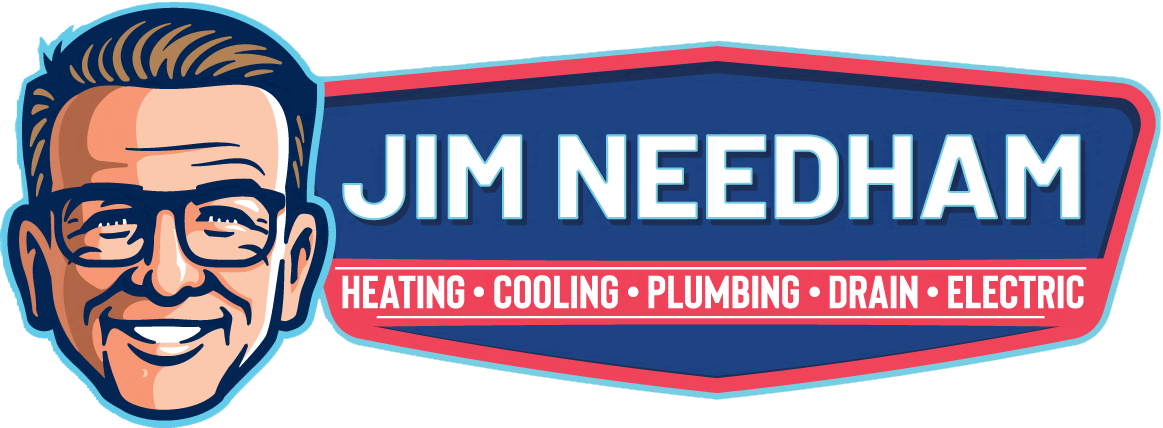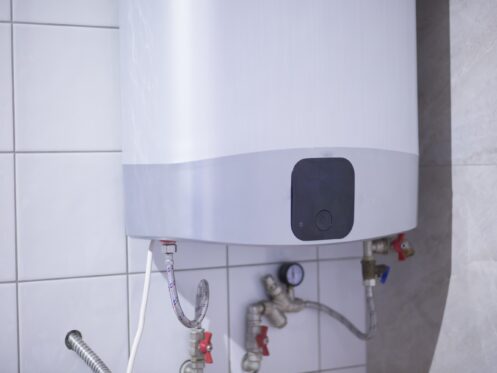Are you considering switching from a conventional tank water heater to a tankless unit? The popularity of tankless water heaters has skyrocketed in recent years due to all the advantages they have compared to tank units. If you want to ensure that your hot water demands are always met, a tankless water heater is the way to go. In this article, we’ll explain why and discuss everything you should know about tankless water heaters and their benefits.
An Introduction to Tankless Water Heaters and How They Work
Tankless water heaters are quite different from conventional tank water heaters. Although both types of units heat water using either a gas burner or electric heating elements, they still work differently. A tank water heater heats the water inside its storage tank and must run occasionally to ensure it is always at the correct temperature. The unit will also run any time hot water is used since this results in cold water flowing into the bottom of the tank.
Instead of storing hot water, a tankless water heater heats it as it flows through the unit. Gas units have a large burner that burns natural gas or propane to produce heat. The heat rises through a large pipe within the unit that serves as a heat exchanger. When the unit turns on, cold water begins flowing through a pipe that wraps around this pipe multiple times. The heat exchanger captures much of the heat from the burner, which flows out of it into the pipe. This results in the water getting increasingly hot as it moves through the pipe to the point where it reaches the correct temperature before flowing out of the water heater and into the home’s hot water pipes.
Electric tankless units work similarly. The only real difference is that they have electric heating elements that create heat and transfer it to the pipe to raise the temperature of the water as it flows through the unit.
Although the process we just described works relatively quickly, it takes a bit of time for the heat exchanger to get hot enough to heat the water to the right temperature fully. That means you’ll need to wait at least 10-15 seconds before the water flowing from the water heater is thoroughly heated. Sometimes, it can even take a minute or more before hot water starts flowing after turning on the shower or faucet. This is especially common if the shower or faucet is on the opposite side of the house from the water heater since the water has to travel further. As the water travels through the house, it loses heat until the pipes get hot.
Why Tankless Water Heaters Are Superior for Meeting All of Your Hot Water Demands
The fact that tankless water heaters provide hot water on demand means that you’ll never have issues with your hot water running out as you do with tank water heaters. That means you’ll essentially have an unlimited supply of hot water. An unlimited hot water supply is one reason a tankless water heater is a great choice. You can almost always be sure it will meet all your hot water needs. You may only encounter issues if you’re trying to run the hot water in too many fixtures at one time. This is because tankless water heaters have a limited flow rate and can only produce a certain number of gallons of hot water per minute.
The average gas unit flow rate is around 5 gallons per minute (GPM). Electric units aren’t capable of producing as much heat, which means many have a slightly lower flow rate of around 3-3.5 GPM.
The flow rate for most showers is anywhere from 1.5 to 3 GPM while washing machines and dishwashers can have a flow rate of anywhere between 2 and 5 GPM. That means if you often shower while doing laundry or dishes, you’ll want to choose a larger unit with a higher flow rate to ensure it fully meets your needs. Another option is to install point-of-use tankless units in your bathroom and kitchen instead of just having one central unit. Point-of-use units are smaller and only supply hot water to the nearby fixtures instead of the whole house. That means there will be no issues if you shower while the dishwasher runs since a different water heater supplies each fixture.
Some people also choose to install one central tankless unit and a point-of-use unit for the bathroom. This route also ensures no flow rate issues since the unit in the bathroom will only supply the shower and bathroom sink.
How a Tankless Water Heater Can Save You Money
Another reason you should consider installing a tankless water heater is that it can help lower your gas or electricity bills. How much you can save with a tankless water heater depends on how much hot water you use. You could cut your energy costs by 25-35% compared to using a tank water heater if you usually don’t use more than 40 gallons of hot water in an average day. If you often use around 80 gallons of hot water daily, the energy savings will still likely be around 10-15%.
A tankless water heater typically costs a few hundred dollars more to install than a tank unit. Nonetheless, it will usually be the more cost-effective long-term choice because it is more efficient and does not use as much energy.
Another thing to consider is that a tankless water heater can often last up to twice as long as a tank unit. Installing a tankless unit can also save you money, as you won’t need to replace your water heater as often.
Other Advantages of Tankless Water Heaters
Tankless water heaters have a few other distinct advantages that make them superior to tank water heaters. One is that you’ll never need to worry about your water heater rupturing and flooding your house like you would if you had an older tank unit.
Another advantage is that tankless units are much easier to maintain. You only need to flush and descale the unit once or twice a year. Descale is done to remove the mineral deposits that can collect on the heat exchanger and prevent the water heater from working effectively. While tankless water heaters require less maintenance, having your unit professionally maintained by a plumber every year is still a good idea. Maintenance is necessary because sometimes the gas burner may need to be cleaned, or the electric heating elements may need to be replaced.
One final thing to consider is that tankless water heaters are small and take up far less room than tank units. That means you can free up space in your home for storage or whatever else you need.
With over 100 years of experience serving customers in Thornton, Littleton, and throughout the Denver Metro area, Jim Needham Heating Cooling Plumbing and Drain is the company to turn to if you need water heater services. We offer expert water heater installation and can ensure you get the best unit for your home. You can hire us to install, repair, and maintain your heating, cooling, ventilation, and plumbing services. Contact us today to learn why a tankless water heater can be a great choice or to schedule any other plumbing, heating, or air conditioning service.


